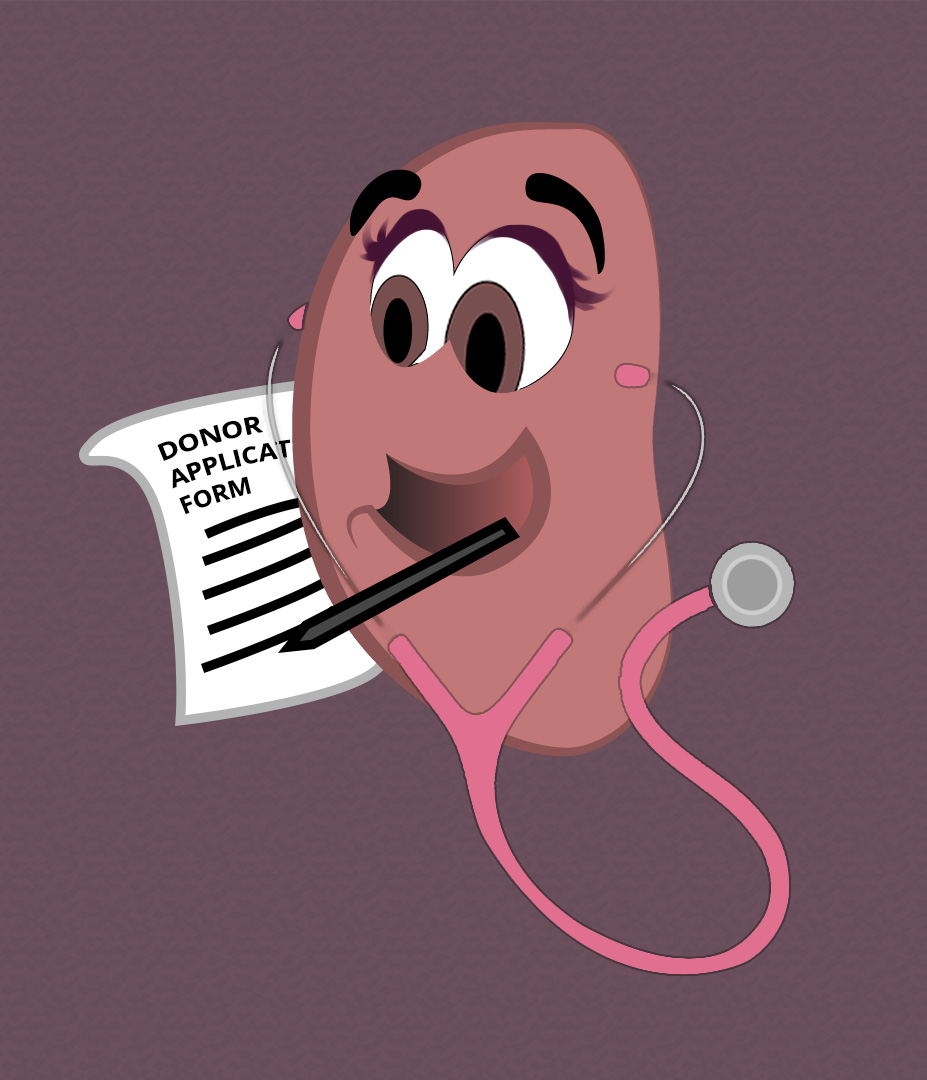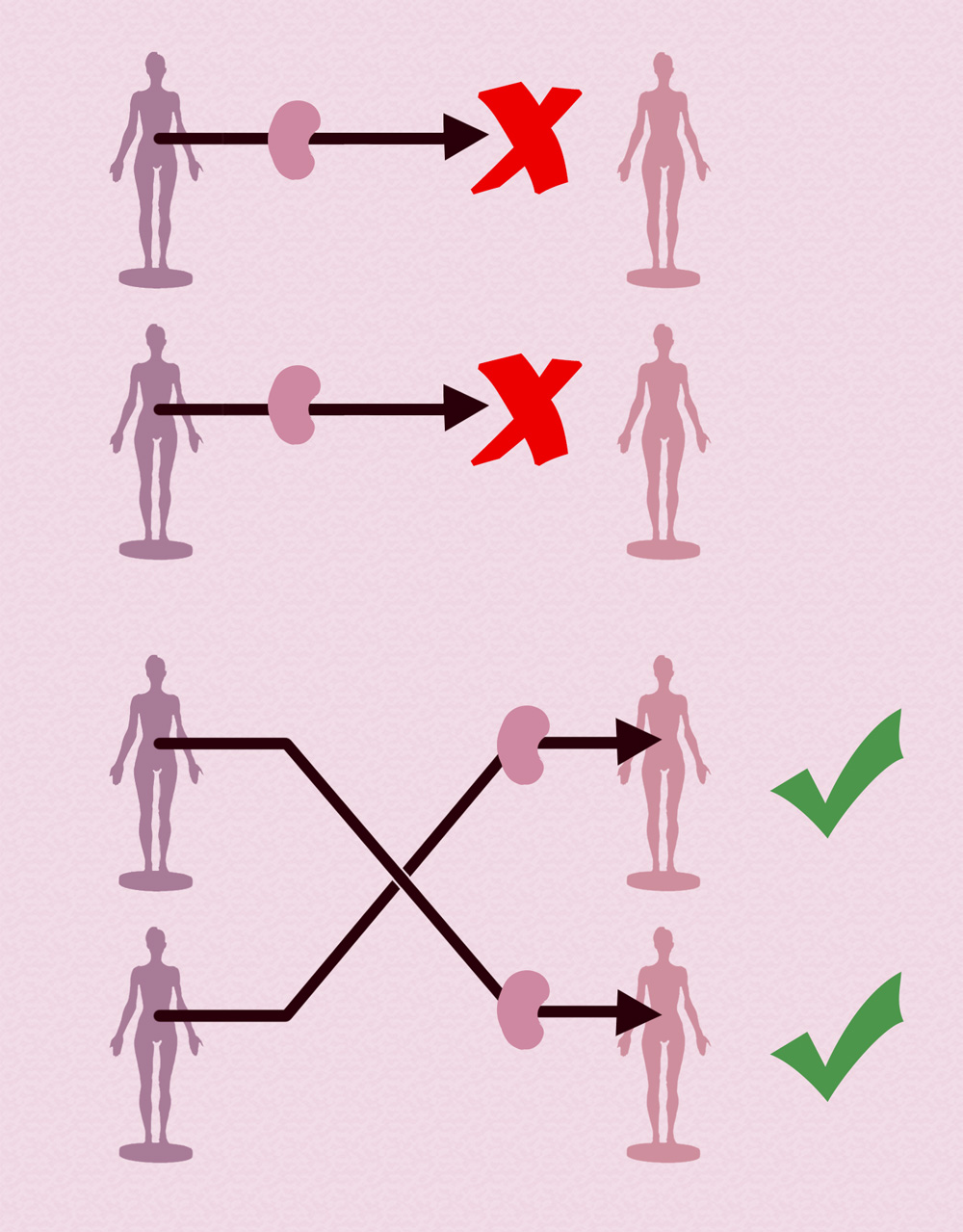What’s the first step to getting a transplant?
Transplants are done through transplant centers. Once referred, your new center will begin a thorough medical evaluation to determine if you’re a transplant candidate.
Part of the Pre-Transplant Workup includes:
- Visiting a cardiologist
- Getting up to date on cancer screening
- Achieving a healthy weight
Where do kidney donors come from?
Living donors are typically ideal for the transplant process. People only need one functioning kidney to live, so it’s possible for people to volunteer to donate.
- A living donor kidney is usually healthier and lasts longer
- Can be placed before you start dialysis
- Will cause less immune reaction
Volunteer donors must also be tested for candidacy by transplant centers. They have to be healthy enough in general to give up one of their kidneys.
What is the Transplant Process?
It’s important to be familiar with the term UNOS. UNOS stands for United Network for Organ Sharing. It is an organization that manages the nations organ transplant system. It’s a system that works under contract with the federal government and brings together transplant and organ institutions.
UNOS is vital in the organ transplant process. It has a computerized network and database which can match donated organs with transplant candidates. Not only that, it also provide transplant recipients with the best possible chance of long-term survival. This is because the criteria used to evaluate patients are programmed into the large UNOS computerized matching system.
UNOS is involved in:
- Educating patients, families and professionals
- Supporting a database with ALL the organ transplant data
- Managing the national transplant list
If you need a kidney or want to become a donor, please visit National Kidney Registry. Another useful site for those that are thinking of donating an organ is OrganDonor.gov.
What if your Living Donor Isn’t a Match?
With a paired exchange, you/your donor find another recipient/donor who don’t match each other, but both recipients are matches for the other donor’s kidney. After a match is confirmed, the two pairs will enter into an agreement to “cross swap”. Your partner then donates their kidney to the other recipient, and you call in the favor by taking the other donor’s kidney in return. Then everyone is happy and healthy!
Learn more about the Paired Exchange Program here: https://www.unos.org/donation/kidney-paired-donation/


